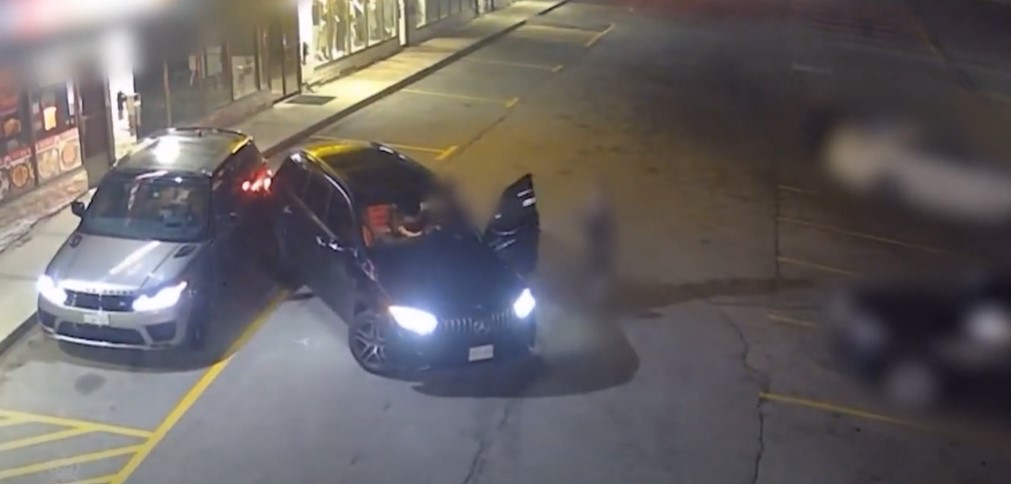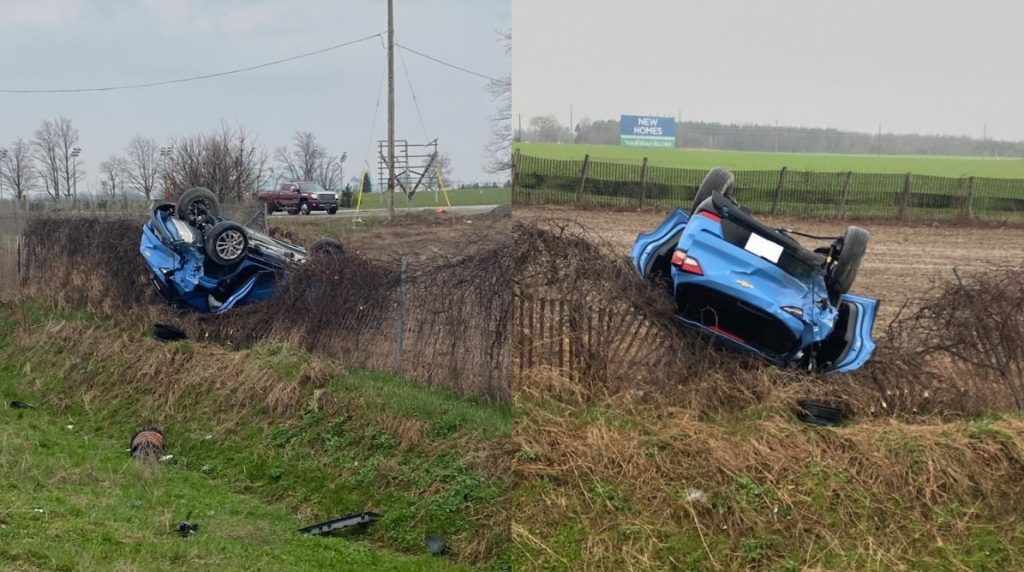Opposition parties slam election dirty tricks campaign linked to Tories
Posted February 24, 2012 6:54 am.
This article is more than 5 years old.
Prime Minister Stephen Harper insists the Conservative party had nothing to do with a dirty tricks campaign aimed at discouraging opposition supporters from voting in last spring’s election.
But given his party’s history of illegal or questionable campaign tactics, New Democrats and Liberals aren’t buying it.
They say the latest revelations are more proof that the Conservatives have systematically cheated and subverted the democratic process in order to win elections.
They’re equating the matter to the notorious Watergate scandal that toppled U.S. President Richard Nixon and they’re demanding a full criminal investigation.
New Democrat MP Pat Martin predicted the magnitude of the scam “will be enough to make Richard Nixon blush.”
The opposition charges came Thursday after a company that did campaign work for Conservatives, including Harper, was linked to harassing or misleading automated phone calls received by voters in some 18 hotly contested ridings just prior to the May 2 election.
The robocalls falsely advised voters that Elections Canada had changed the location of their polling stations. In other instances, voters received harassing late-night or early-morning calls that purported to be from an opposition campaign office.
Edmonton-based RackNine Inc. confirmed Thursday its automated dialing service was used to deliver the phoney messages and that Elections Canada and the police are investigating.
“I was shocked and distressed to learn that some party had used our services to try and disrupt voting during the 2011 federal election,” RackNine CEO Matt Meier said in an email to The Canadian Press.
“We are committed to ensuring that those who misused our services will face the full penalty of law and will continue to work proactively with Elections Canada and all law enforcement agencies to help identify the culprits.”
The RCMP refused to confirm or deny it is part of an investigation, but said it may work with government departments or agencies if it is asked.
For his part, Harper denied any knowledge of the scams.
“I have absolutely no knowledge on anything about these calls but, obviously, if there’s anyone who has done anything wrong, we expect that they will face the full consequences of the law,” he told reporters during a visit to Iqaluit.
He added that “our party has no knowledge of these calls. They are not part of our campaign.”
Conservative party campaign manager Jenni Byrne said her party “ran a clean and ethical campaign and would never tolerate such activity,” although she left open the possibility that a rogue local party worker may have been involved.
“The party was not involved with these calls and if anyone on a local campaign was involved they will not play a role in a future campaign. Voter suppression is extremely serious and if anything improper occurred those responsible should be prosecuted to the full extent of the law,” she said in a written statement.
However, opposition parties scoffed at the notion of a rogue Tory acting independently in ridings from Nova Scotia to Manitoba.
The NDP’s Martin said the Tories are “laying the foundation for throwing some kid under the bus” when it’s clear there’s been “a massive conspiracy to defraud the electoral system.”
Opposition MPs noted that whomever organized the calls had to have access to lists that identified each voter’s party preference — something typically only available to local and national party campaign headquarters.
Moreover, they noted that this is not the first time the Conservative party has been caught playing fast and loose with election law or rules of fair play.
Last December, the party was castigated by the Speaker of the House of Commons for conducting a “reprehensible” phone campaign in the Montreal riding of Liberal Irwin Cotler which falsely suggested the MP was about to step down.
A month earlier, the Conservative party and its fundraising arm pleaded guilty to exceeding the party’s spending limit during the 2006 election campaign, through an elaborate scheme in which the party funnelled money for national ads through 67 local candidates. Charges against four top party officials were dropped as part of a plea bargain.
Interim Liberal leader Bob Rae said “the whole, messy, tangled web” needs to be investigated. And he laid the blame for all of them squarely on Harper.
“What this suggests is a deeply troubling pattern of dirty tricks and systematic attempts to subvert the democratic process,” Rae said in an email.
“A party whose entire approach to politics is negative … is responsible for a toxic and poisonous political culture. It’s in this culture that dirty tricks thrive. Richard Nixon gave birth to Donald Segretti. Mr. Harper gives birth to these tricks as well. The fish rots from the head.”
Segretti was a dirty tricks specialist in the infamous 1972 Nixon campaign. He spread rumours, harassed opponents and distributed phoney campaign literature aimed at discrediting Democrats. In 1974, his illegal efforts won him a six-month jail sentence.
Harper refused to concede any pattern to his party’s behaviour, saying “all of these are different” controversies.
Martin said the phoney robocall ploy was used in at least eight ridings held by the NDP, in addition to almost a dozen Liberal ridings. While the NDP held onto most of its seats, Martin said the ploy may have cost it one seat in Edmonton and another in Nova Scotia.
Liberal MP John McCallum said at least three of his former colleagues — Martha Hall Findlay, Borys Wrzesnewskyj in Toronto and Anita Neville in Winnipeg — may have been defeated as a result.
McCallum admitted there’s no concrete evidence linking the Tories to the robocalls.
“We don’t have a smoking gun pointing to Stephen Harper and the Conservative party, but we do know that these actions benefited the Conservative party and we do know this strategy has been in their tool kit for some time. So there are definitely suspicions.”
The police and Elections Canada investigation appears to centre on the riding of Guelph, where the Tories had hoped to knock off Liberal incumbent Frank Valeriote.
Valeriote, who won, said hundreds of Liberal supporters received both the harassing calls and the false voting location calls.
He had some voters call his office to say they wouldn’t vote for someone without the judgment to call them at a decent hour. Others, who showed up at the false voting location, returned home in disgust without bothering to cast a ballot.
“It was a concerted effort to suppress votes. It’s a neo-conservative, Republican tactic that’s been documented in the United States and was adopted here,” Valeriote said in an interview. “By who? Who knows.”
Valeriote lodged a complaint and within two weeks of the election an Elections Canada investigator was in the riding interviewing him and voters who’d received the calls he said.
A memo circulated to Elections Canada officials on May 16 details some of the allegedly fraudulent activity that occurred during the campaign but concludes nothing happened that could have changed the results of the general election or in any riding.
“Although misconduct was reported in several ridings, there is no complaint that it affected the final result,” says the memo, released under the Access to Information Act.
The memo also warned that investigations in to robocalls sent through intermediaries are “difficult, time consuming and may be inconclusive.”
Documents filed with Elections Canada show Racknine did campaign work for at least nine Conservative candidates during last spring’s federal election: Harper, Public Works Minister Rona Ambrose, Citizenship and Immigration Minister Jason Kenney, backbenchers Leon Benoit, Laurie Hawn, Lee Richardson, Devinder Shory,
Cathy McLeod and failed candidate Ryan Hastman.
The Tory campaigns paid RackNine at least $31,745, according to the invoices.
McLeod, whose campaign paid RackNine $328.52, said she recorded a message to drum up support and volunteers in her British Columbia riding of Kamloops—Thompson—Cariboo.
“I think it’s important that the Conservative party runs a clean campaign. I don’t think the company chooses the messages. Certainly, they just provide a system for the message to go out, which in my case, I recorded a message that asked for volunteers,” she said.
It appears the company only worked for Conservative candidates in the last election. Campaign returns for Liberal and NDP candidates posted on the Elections Canada website do not list RackNine.










